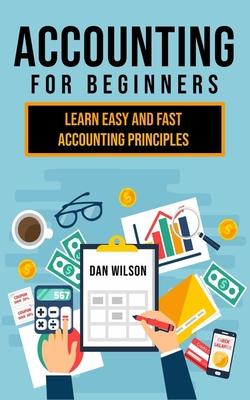Numbers rule the world. And not just numbers but money drives the world.
But when money is represented in numbers in financial statements in the form of balance sheets, income statements, cashflow statements and various accounting ratios, most of us go blind!We just see gibberish and can't understand why some numbers are in one place and not another, how these figures come about, and how to make sense of these numbers to make decisions and much more.
The truth is; if you cannot read, understand and interpret financial statements, you are likely to go into the investment world blindly. Even if you want to venture into self-employment where you start your own business, it will be hard to know how well or bad you are doing in various aspects if you can't prepare, read, analyze and interpret financial reports.
The IRS will probably also be on your case for tax purposes.
And it is not just about running a business or investing; accounting as a profession is highly lucrative with the average starting salary of entry level accounting jobs being around $40,000-$60,000 and over $100,000 for accountants with over 5 years' experience.
If you want to venture into the world of accounting (whether to build a career as an accountant or to understand accounting basics to help you make investing and business decisions), you have to start somewhere.
This 'somewhere' is understanding the basics of accounting, including:- What accounting is as well as what it entails
- The different principles that govern accounting practices, why they are important and how to apply these principles
- The different types of accounting
- The 3 important elements of accounting that you MUST be aware of
- Different areas of practice
- Key assumptions, concepts and constraints that apply in accounting
- The accounting equation
- Accounting conventions and concepts you should know about when getting started
- The different financial reports that you will need to know how to prepare and how to prepare different financial statements
- The rules that apply when preparing financial statements
- How to prepare financial statements for profit businesses and not for profit businesses
- How to fix any errors that arise during the accounting process
- And much more!
Lucky for you, this book covers each one of these things and more in simple, jargon free language to enable you to apply what you learn without needing any further help.
The book uses easy to follow examples to break down even complex concepts to ensure even complete beginners can apply the concepts with ease.
So if you want to go all in into the world of accounting as a complete beginner, this book is enough to get you started!
Don't wait.Click Buy Now With 1-Click or Buy Now at the top of this page to get started!
